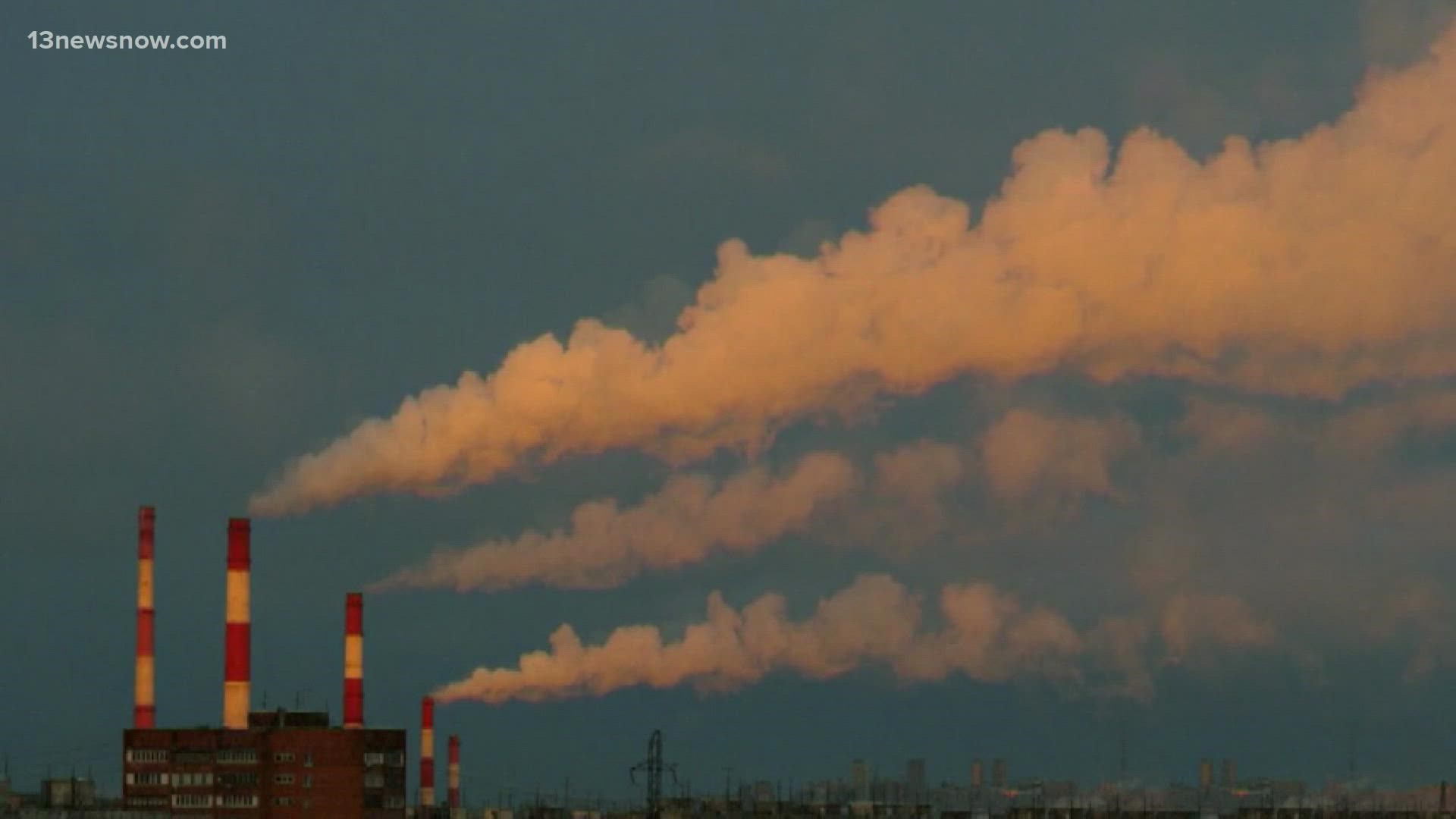NORFOLK, Va. — Virginia Gov. Glenn Youngkin's administration is aiming to withdraw the state from the Regional Greenhouse Gas Initiative (RGGI) by the end of 2023 without legislative action from state lawmakers.
Travis Voyles, the acting Virginia secretary of natural and historic resources, presented the withdrawal plans to the Virginia Air Pollution Control Board during its Wednesday meeting.
If it goes through, the state would no longer be part of the auction-based carbon emissions reduction program alongside 10 other East Coast states.
Voyles' presentation lines up with Youngkin's ninth executive order, which ordered administration officials to propose a regulation that would repeal the state's participation in RGGI.
"RGGI is a bad deal for Virginia," Voyles told board members. "Whether you agree with the framework and principles of the cap and trade system, the way RGGI has been implemented in Virginia does not work as an effective means for greenhouse gas reductions."
Voyles opened his presentation by arguing that RGGI passes costs onto Virginia consumers "as a tax" without incentivizing any change in behavior from electricity providers because of the way it was set up.
He also claimed that Virginia's participation allows northeastern states to dictate the state's energy policies, as opposed to Virginians and elected officials.
Voyles concluded his opening argument by saying Virginians don't need "a regressive energy tax through RGGI" to fund programs that address climate resiliency and energy efficiency.
After explaining where the administration stands on RGGI, Voyles said officials will soon introduce a notice of intended regulatory action repealing the state's participation.
Under Virginia law, those notices should describe the planned regulation and allow at least 30 days for the public to comment.
Voyles said the regulation would allow the state to leave RGGI by the end of 2023, coinciding with the end of the program's three-year compliance period and contract with the organization that manages the program. He added that waiting to withdraw would provide regulatory certainty.
Despite these steps, it's legally ambiguous if Virginia can leave the program without new legislation because of provisions in the Clean Energy and Community Flood Preparedness Act.
Following Voyles' presentation, the Southern Environmental Law Center said the action taken by the Youngkin administration wasn't legal, and the program is beneficial for Virginians.
“RGGI has already proven it reduces pollution at the same time that it brings in desperately needed resources," SELC Senior Attorney Nate Benforado said in a statement. "But instead of supporting this popular program to reduce carbon pollution, the Youngkin administration has consistently sought to take unlawful action to end Virginia’s participation in RGGI — despite the fact that neither the governor nor regulators have the authority to do so."
Benforado attended the presentation and spoke to the board following Voyles' presentation, saying it doesn't matter what he, board members or Youngkin think about RGGI.
"The General Assembly decided this policy for us in 2020," Benforado told board members. "They wrote a law that mandates we participate in RGGI."
RGGI is comprised of Connecticut, Delaware, Maine, Maryland, Massachusetts, New Hampshire, New Jersey, New York, Rhode Island, Vermont and Virginia. These states have a regional cap that limits carbon dioxide emissions from power plants, a limit that will get stricter over time.
Within the program, regulated power plants have to acquire carbon dioxide emission allowances for every short ton they emit, which are distributed at quarterly actions.
The idea behind a cap-and-trade program, such as RGGI, is to encourage power plants to reduce greenhouse gas emissions that contribute to climate change and invest in clean energy production.
Voyles' presentation to the Virginia Air Pollution Control Board came the same day that the National Oceanic and Atmospheric Administration released the 2021 State of the Climate report, which found greenhouse gas concentrations, global sea levels and ocean heat levels all hit record highs last year.
The Aug. 31 board meeting is available on the Virginia DEQ's YouTube channel.

